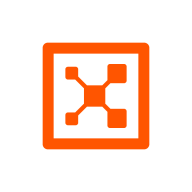


Illumio and Microsoft Defender for Cloud are competing in the cybersecurity space. Illumio has the edge in segmentation and visibility, but Microsoft Defender for Cloud is seen as superior due to its extensive feature set.
Features: Illumio offers rapid segmentation and end-to-end application traffic visibility. Microsoft Defender for Cloud provides strong integration with Azure, enhanced threat detection, and automated response. Illumio focuses on data center security, whereas Microsoft leverages its ecosystem for broader cloud protection.
Room for Improvement: Illumio could improve its cloud security capabilities, user interface complexity, and integration with third-party tools. Microsoft Defender for Cloud may enhance its cost-effectiveness, reduce deployment complexity for non-Azure environments, and refine its policy management features.
Ease of Deployment and Customer Service: Illumio offers centralized management and rapid installation with tailored customer support. Microsoft Defender for Cloud benefits from its Azure integration, simplifying deployment and providing extensive global support and resources. Microsoft's proactive customer service is considered superior.
Pricing and ROI: Illumio is competitive with high ROI through precise security capabilities. Microsoft Defender for Cloud, at a premium price, justifies its cost with comprehensive features and seamless integration within Microsoft's ecosystem, providing substantial ROI.
The detailed information PingSafe gives about how to fix vulnerabilities reduces the time spent on remediation by about 70 to 80 percent.
After implementing SentinelOne, it takes about five to seven minutes.
Cloud Native Security does offer ROI.
Illumio is known to be the cheapest solution among the security solutions we evaluated.
Defender proactively indexes and analyzes documents, identifying potential threats even when inactive, enhancing preventative security.
Identifying potential vulnerabilities has helped us avoid costly data losses.
The biggest return on investment is the rapid improvement of security posture.
When we send an email, they respond quickly and proactively provide solutions.
They took direct responsibility for the system and could solve queries quickly.
Having a reliable team ready and willing to assist with any issues is essential.
Even if we raise an issue on non-working days like Saturdays or Sundays, we receive prompt responses.
From my experience, they are very responsive.
Since security is critical, we prefer a quicker response time.
The support team was very responsive to queries.
They understand their product, but much like us, they struggle with the finer details, especially with new features.
I would rate it a 10 out of 10 for scalability.
Scalability is no longer a concern because Cloud Native Security is a fully cloud-based resource.
I would rate the scalability of PingSafe 10 out of 10.
Scaling it to a large level is not an issue for us.
We are using infrastructure as a code, so we do not have any scalability issues with Microsoft Defender for Cloud implementation because our cloud automatically does it.
It has multiple licenses and features, covering infrastructures from a hundred to five hundred virtual machines, without any issues.
Defender won't replace our endpoint XDR, but it will likely adapt and support any growth in the Microsoft Cloud space.
It's a reliable solution that the organization is increasingly adopting for its robust features and security.
We contacted Cloud Native Security, and they addressed it in a day.
The only downtime we had was when switching from V1 to V2 but it was smooth.
Illumio is a stable solution with no glitches or bugs reported, making it a reliable product for us.
Defender's stability has been flawless for us.
Microsoft Defender for Cloud is very stable.
Microsoft sometimes changes settings or configurations without transparency.
If they can merge Kubernetes Security with other modules related to Kubernetes, that would help us to get more modules in the current subscription.
As organizations move to the cloud, a cloud posture management tool that offers complete cloud visibility becomes crucial for maintaining compliance.
I would also like to see Cloud Native Security offer APIs that allow us to directly build dashboards within the platform.
There could also be more examples of how the automations can be done using Illumio.
That's why I'm looking for comparisons with other products.
There should be an option to upgrade from the console to the latest version instead of performing manual upgrades.
Microsoft, in general, could significantly improve its communication and support.
It would be beneficial to streamline recommendations to avoid unnecessary alerts and to refine the severity of alerts based on specific environments or environmental attributes.
The artificial intelligence features could be expanded to allow the system to autonomously manage security issues without needing intervention from admins.
I believe the enterprise version costs around $55 per user per year.
There are some tools that are double the cost of Cloud Native Security.
I recall Cloud Native Security charging a slightly higher premium previously.
I know that Illumio is the cheapest solution in the security area.
I think it's not very expensive if we compare it with Guardicore.
Every time we consider expanding usage, we carefully evaluate the necessity due to cost concerns.
We appreciate the licensing approach based on employee count rather than a big enterprise license.
Microsoft Defender for Cloud is pricey, especially for Kubernetes clusters.
This helps visualize potential attack paths and even suggests attack paths a malicious actor might take.
The infrastructure-as-code feature is helpful for discovering open ports in some of the modules.
This tool has been helpful for us. It allows us to search for vulnerabilities and provides evidence directly on the screen.
Illumio helps in audit purposes by saving data and showing blocked traffic, ensuring no outside traffic is allowed.
The most important feature is the traffic review analysis, where we use the draft view and the reported view that helps us understand how the application interacts with other applications in the environment, and based on that, we are able to define the policies.
The dependency map is the most valuable aspect.
The most valuable feature for me is the variety of APIs available.
This feature significantly aids in threat detection and enhances the user experience by streamlining security management.
The most valuable feature is the recommendations provided on how to improve security.
| Product | Market Share (%) |
|---|---|
| Microsoft Defender for Cloud | 15.4% |
| SentinelOne Singularity Cloud Security | 3.6% |
| Illumio | 6.1% |
| Other | 74.9% |



| Company Size | Count |
|---|---|
| Small Business | 46 |
| Midsize Enterprise | 20 |
| Large Enterprise | 53 |
| Company Size | Count |
|---|---|
| Small Business | 3 |
| Midsize Enterprise | 1 |
| Large Enterprise | 8 |
| Company Size | Count |
|---|---|
| Small Business | 26 |
| Midsize Enterprise | 7 |
| Large Enterprise | 45 |
SentinelOne Singularity Cloud Security offers a streamlined approach to cloud security with intuitive operation and strong integration capabilities for heightened threat detection and remediation efficiency.
Singularity Cloud Security stands out for its real-time detection and response, effectively minimizing detection and remediation timelines. Its automated remediation integrates smoothly with third-party tools enhancing operational efficiency. The comprehensive console ensures visibility and support for forensic investigations. Seamless platform integration and robust support for innovation are notable advantages. Areas for development include improved search functionality, affordability, better firewall capabilities for remote users, stable agents, comprehensive reporting, and efficient third-party integrations. Clarity in the interface, responsive support, and real-time alerting need enhancement, with a call for more automation and customization. Better scalability and cost-effective integration without compromising capabilities are desired.
What are SentinelOne Singularity Cloud Security's standout features?SentinelOne Singularity Cloud Security is deployed in industries needing robust cloud security posture management, endpoint protection, and threat hunting. Utilized frequently across AWS and Azure, it assists in monitoring, threat detection, and maintaining compliance in diverse environments while providing real-time alerts and recommendations for proactive threat management.
Illumio Zero Trust Segmentation is a cloud and data center security solution that helps stop breaches from spreading across hybrid and multi cloud IT environments. The solution is designed to stop ransomware, contain cyber attacks, and reduce risk. With Illumio Zero Trust Segmentation, users can understand relationships and communications to map exposure risk of systems and data, identify the right security posture and secure applications through least-privilege policies, and ensure a Zero Trust security posture.
Illumio Zero Trust Segmentation Features
Illumio Zero Trust Segmentation has many valuable key features. Some of the most useful ones include:
Illumio Zero Trust Segmentation Benefits
There are many benefits to implementing Illumio Zero Trust Segmentation. Some of the biggest advantages the solution offers include:
Reviews from Real Users
Illumio Zero Trust Segmentation is a solution that stands out when compared to many of its competitors. Some of its major advantages are that it has a good auto policy writing feature, great mapping, and useful monitoring.
Shashi, Technical Consultant at a financial services firm, explains which features she really likes. “The auto policy writing is great. The feature will give you the option of inbound-outbound traffic. The Explorer allows you to know the traffic between source and destination. The illumination definitely stands out. Mapping is great. The application group mapping is useful.”
The solution has “helpful support, useful monitoring, and high availability,” according to Edwin L., Security Architect at MGM.
Microsoft Defender for Cloud is a comprehensive security solution that provides advanced threat protection for cloud workloads. It offers real-time visibility into the security posture of cloud environments, enabling organizations to quickly identify and respond to potential threats. With its advanced machine learning capabilities, Microsoft Defender for Cloud can detect and block sophisticated attacks, including zero-day exploits and fileless malware.
The solution also provides automated remediation capabilities, allowing security teams to quickly and easily respond to security incidents. With Microsoft Defender for Cloud, organizations can ensure the security and compliance of their cloud workloads, while reducing the burden on their security teams.
We monitor all Cloud Workload Protection Platforms (CWPP) reviews to prevent fraudulent reviews and keep review quality high. We do not post reviews by company employees or direct competitors. We validate each review for authenticity via cross-reference with LinkedIn, and personal follow-up with the reviewer when necessary.